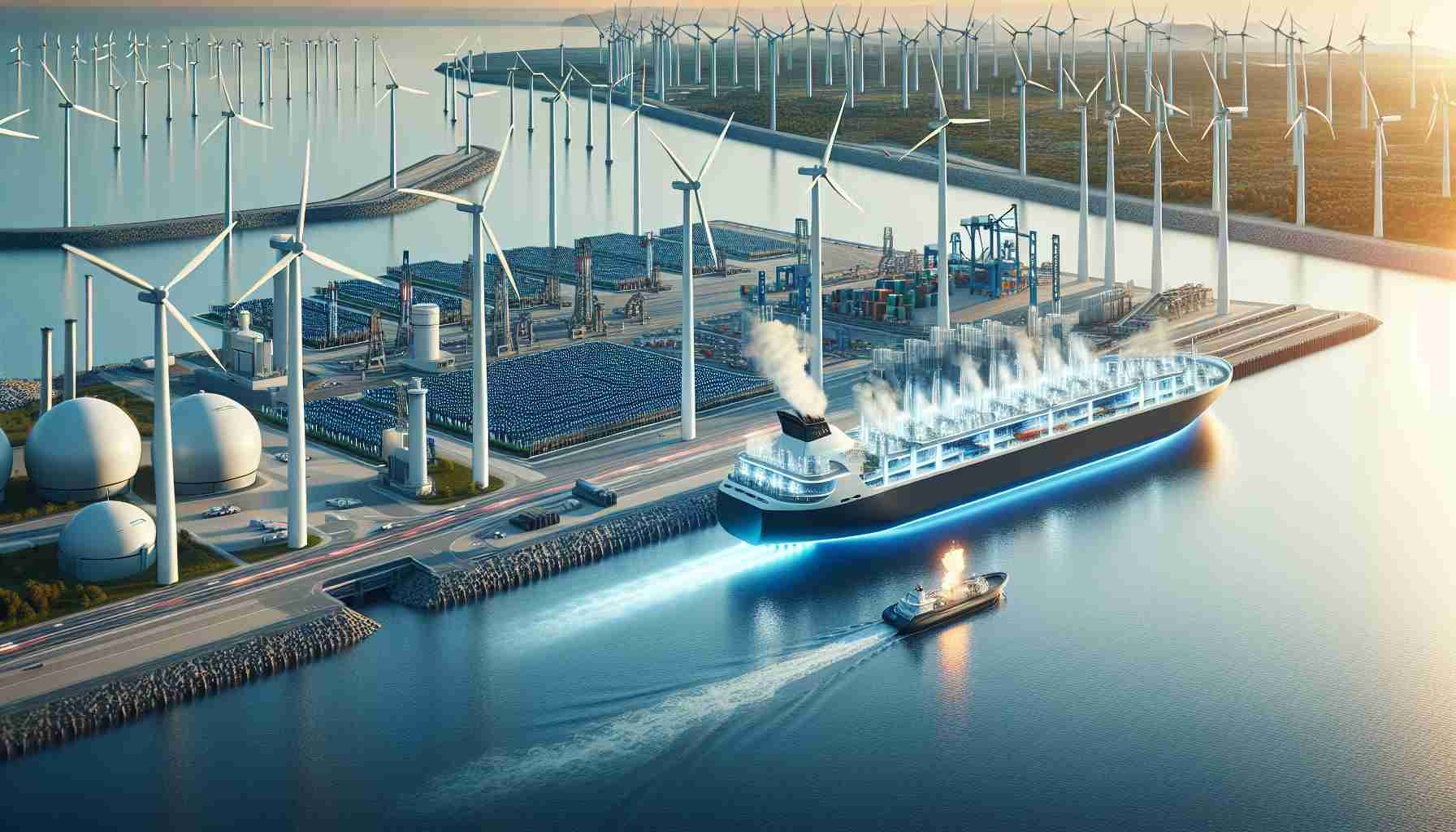The world of logistics is on the brink of transformation, and hydrogen power is leading the charge. Hyundai has recently launched its hydrogen fuel-cell trucks in Georgia, marking a significant milestone towards a potential “hydrogen highway” in the state.
These innovative trucks, known as the Hyundai XCIENT, are designed to operate with zero emissions, presenting a sustainable solution compared to traditional freight logistics. The CEO of the Hyundai Metaplant, Oscar Kwon, expressed the company’s commitment to enhancing environmental standards in manufacturing.
In January, Hyundai announced plans to integrate these trucks into Georgia’s supply chain, effectively linking the Savannah port with local suppliers and the Metaplant located about 27 miles away. This initiative aims to establish a robust hydrogen infrastructure, coinciding with state efforts to champion the hydrogen market and advance electric vehicle technologies.
While hydrogen is abundant, its application as a fuel requires careful production methods to ensure environmental benefits. Currently, a significant portion of hydrogen comes from fossil fuels. However, Hyundai’s hydrogen fuel cells utilize a clean method by splitting hydrogen atoms to create electricity, akin to batteries.
In collaboration with Glovis America, Hyundai is not only introducing 21 of these trucks but is also setting up a mobile refueling station at the Metaplant, with permanent facilities in the works. As Georgia seeks to strengthen its ties with Korea through innovative technologies, state leaders see hydrogen as a key player in this evolving landscape.
Hydrogen-Powered Logistics: The Future of Sustainable Trucking
The logistics sector is undergoing a transformative shift, with hydrogen power leading the charge towards a greener future. Hyundai’s recent launch of its hydrogen fuel-cell trucks in Georgia represents a significant step towards establishing a comprehensive “hydrogen highway” in the state, aimed at redefining freight transportation.
Overview of Hyundai’s XCIENT Trucks
Hyundai’s XCIENT trucks are engineered to operate with zero emissions, offering a sustainable alternative to traditional diesel-powered vehicles. This advancement aligns with increasing demands for eco-friendly logistics solutions. Oscar Kwon, CEO of Hyundai Metaplant, reiterated the company’s dedication to enhancing environmental standards in manufacturing processes, driving innovation in fuel technologies.
Integration into Georgia’s Supply Chain
In January, Hyundai outlined plans to incorporate these hydrogen trucks into Georgia’s supply chain. This integration will create an efficient logistical link between Savannah’s port and local suppliers, including the Hyundai Metaplant located approximately 27 miles away. Such initiatives not only bolster local economies but also contribute to the state’s ambition of becoming a leader in hydrogen market advancements and electric vehicle technologies.
Hydrogen Production and Sustainability
While hydrogen is one of the universe’s most abundant elements, significant consideration must be given to its production methods. Currently, most hydrogen is derived from fossil fuels, raising environmental concerns. However, Hyundai’s fuel-cell technology addresses this issue by employing a clean process that splits hydrogen molecules to generate electricity, functioning similarly to battery technology. This cleaner approach supports Hyundai’s initiative to promote sustainability within the logistics industry.
Partnerships and Infrastructure Development
Hyundai is collaborating with Glovis America, earmarking 21 hydrogen fuel-cell trucks for deployment in Georgia. Alongside this rollout, the establishment of a mobile refueling station at the Metaplant is underway, with plans for permanent facilities in the future. This infrastructure is crucial as it lays the groundwork for scaling hydrogen-powered logistics and enhancing operational efficiency.
The Role of Hydrogen in Future Logistics
As Georgia strengthens its ties with Korea through technological advancements, state leaders view hydrogen as a critical element in the evolving logistics landscape. The focus on hydrogen power not only facilitates significant reductions in greenhouse gas emissions but also positions the state as a pioneer in clean energy transportation solutions.
Market Analysis and Future Predictions
The logistics industry is increasingly turning to alternative energy solutions, and hydrogen stands out for its potential. Market trends indicate that investments in hydrogen technology will likely increase as companies seek to meet sustainable goals and navigate regulatory landscapes prioritizing emissions reductions.
Pros and Cons of Hydrogen Fuel-Cell Trucks
Pros:
– Zero Emissions: Operate without emitting greenhouse gases.
– Sustainability: Utilizes cleaner production methods for hydrogen.
– Government Support: Aligns with state and federal efforts to promote clean technologies.
Cons:
– Infrastructure Needs: Requires significant investments in refueling stations.
– Hydrogen Production Concerns: Majority is currently sourced from fossil fuels.
– Cost and Availability: Fuel-cell vehicles may still have a higher initial cost compared to diesel trucks.
Conclusion
The emergence of hydrogen-powered trucks, spearheaded by Hyundai’s innovative efforts, signifies a monumental shift in the logistics sector towards sustainability. With the establishment of supporting infrastructure and a commitment to eco-friendly technologies, Georgia may soon become a beacon of progress in hydrogen logistics.
For more insights into the future of logistics and hydrogen technology, visit Hyundai’s official site.

